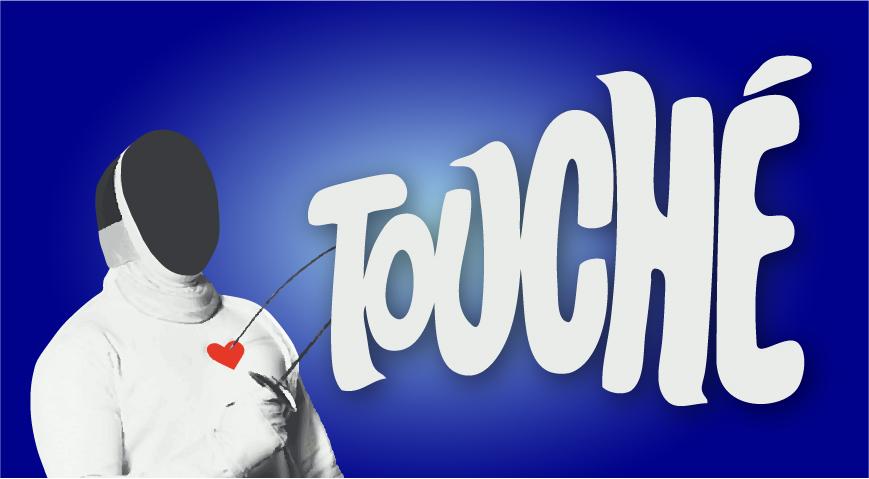Why “touché” is the best word
December 21, 2014
Touché is the most beautiful word in the English language. Or is it French? Well it doesn’t matter, what’s important is the word itself.
The word literally means touched. When you hit your opponent in fencing, they say touché to signify a point against them. In an argument, touché means that you’re admitting that they made a good point, or when someone has made a good comeback.
Why is this word so beautiful? This word is the culmination of everything a debate is supposed to be.
All too often, arguments turn into heated shouting matches where whoever is louder “wins.” That is not what a debate should be. When two opposing viewpoints meet, it should be a collaboration. I know that sounds silly, but hear me out.
What is a debate? Common convention dictates that a debate is when two people who are on opposite sides of a viewpoint try to outmaneuver one another until they feel that they have proved their point. What does this sort of debate achieve? Absolutely nothing. The “winner” got a chance to stroke their ego, and the “loser” feels dumb.
I propose the socratic method of discussion and debate. Most students associate with sitting in a large circle in their classroom trying to get a word in the discussion but someone louder than you always seems triumph over you.
The true socratic method is a type of discussion that heavily focuses on questioning “the other side” to stimulate critical thinking and to actually get somewhere in the conversation, to learn something new and to gain a new perspective.
What does touché do to this idea of enlightened debate? One of the most important aspects of a discussion is being able to admit when you’re wrong. If that happens, the argument can’t move on. When someone says touché, they are signifying that their opponent has made a good point, something that they didn’t think of.
This idea doesn’t just apply to novel arguments like which Teenage Mutant Ninja Turtle is the best (obviously Leonardo), but politicians especially could learn a few things from touché.
In a time when political differences means complete and utter gridlock in Washington, the ability to cede ground is invaluable. The United States was built on compromise, and the astounding inability of contemporary politicians to give even an ounce of effort into working with the other side, be it Democrat or Republican, is staggering.
Obama, Boehner, Clinton and McConnell, try to work touché a little bit more into your vocabulary.








